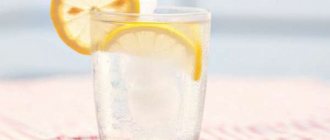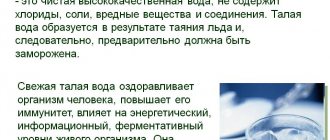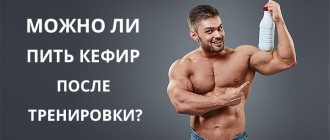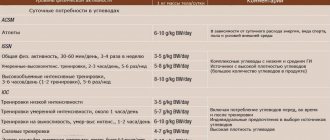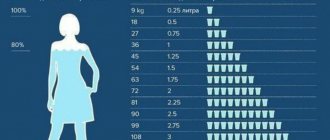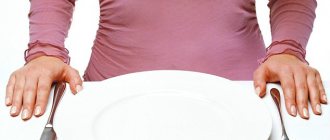According to medical indications, dehydration has a detrimental effect on the body. On average, after an hour-long workout, a person loses up to 1.5 liters of water, and if it was especially intense, then this figure reaches two liters. During physical activity, changes occur in the body, body temperature rises, heart rate increases, and thermoregulation changes.
If you do not drink enough fluid, you may:
- Increased sweating;
- Jumps in blood pressure, a sharp decrease or increase;
- Dizziness and even loss of consciousness.
Hydration levels can drop to a critical level, especially if you take diuretics at the same time as training. But women who are losing weight often resort to such methods of combating excess weight. But this path is not justified and is a mistake.
Water after workout if you are losing weight
At first, weight loss occurs precisely due to fluid loss, which does not bring you any closer to your cherished goal and desired figure. Water is essential: it speeds up metabolism, which means weight loss and fat burning occur at an accelerated pace. Dehydration, on the contrary, slows down all processes. If you do not saturate the body with fluid in time, the level of cortisol begins to increase. This hormone, entering the blood, increases appetite and interferes with the process of lipolysis (fat breakdown). A 1% decrease in hydration levels slows down your metabolism, which means it interferes with weight loss. When under stress, the body will not burn excess reserves.
When getting ready for a workout, it is better not to eat a couple of hours before it, this will provide the necessary lightness and mood. Take a bottle of still mineral water with you, which you need to drink in small sips during sports activities. This is especially important for those who train in a thermal suit. Restoring the water balance should be done every 20-30 minutes, a couple of sips is enough. After completing your workout, you should limit yourself from eating and drinking heavily for an hour.
Mineral waters and sports
Today, high achievements in sports are inextricably linked with enormous work in training and, let’s be honest, with the use of doping drugs that can activate the body’s functioning at a certain stage.
Like 1
1410
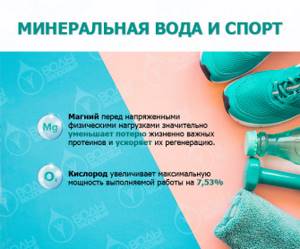
An athlete’s preparation under the guidance of a coach and a doctor is carried out precisely in such a way as to achieve peak results for competitions. And when an athlete achieves a well-deserved victory, but does not pass doping control, then all responsibility immediately falls on him - deprivation of the award, disqualification, contempt, oblivion... Why an athlete and not a doctor?
According to this logic, it turns out that the patient, having gone to the doctor and received a prescription, bought and drank the medicine as prescribed, and did not recover, turns out to be guilty. It is always not the doctor who is to blame, but the patient! But what can he understand about medicines?
- 222
More details - 162
More details
- 168
More details
- 162
More details
One day, the doctor prescribed me a medicine that I had previously taken for more than 10 years. It helped me, but very briefly, and I asked: “How will it help me?” To which I received an irritated answer: “Buy and drink!” After that, I began to search and found other methods of treating and preventing diseases. Now I haven’t gone to the doctor for more than four years, I don’t take medications, my illnesses have gone away, and my energy has increased.
Someone might ask: “What does sport have to do with it?” The fact is that sport simultaneously requires enormous endurance, speed of reaction, instant decision-making (brain function), coordination of movements and much more.
To perform such a variety of work, the body must have significant reserves, both physical and mental.
It has these reserves. We can use them in two ways.
The 1st path is the path of violence against the body through doping, which, most likely, will not lead to victory, and what is certain, will lead to diseases that will be a response to violence.
The 2nd way is to become a friend to your body, give it everything it needs at the right time, making reserves for this in its “depot” and giving at the right time an additional breath of oxygen, which activates the work of cells, including the brain and muscles - after all Without oxygen, cells simply cannot live.
According to research, mineral waters with a high content of Mg (magnesium) and waters enriched with oxygen provide great assistance in solving these issues.
Here's what studies done in Europe say: “When metabolic activity increases, as occurs during high physical activity, the need for Mg increases, it is an important regulator of glycolysis and oxygen transport in red blood cells. Mg deficiency is caused by increased consumption during exercise and loss through sweat.”
“It can be concluded that Mg supplementation before strenuous exercise significantly reduces the loss of vital proteins required for energy metabolism and accelerates the regeneration of these proteins.”
In Russia, studies have been conducted on mineral water with a high magnesium content.
Very good results were obtained in restoring sports form after the competition and a letter was written to the State Sports Committee of Russia. “We consider it advisable to use mineral water in the preparation of athletes training to develop endurance for important competitions,” wrote the head of the laboratory of clinical pharmacology and anti-doping control, Doctor of Medical Sciences, Professor R.D. Seifulla.
A significant improvement in results occurred in athletes who drank oxygen-enriched water for 14 days.
The athletes' maximum oxygen consumption increased by 19.62%, while the maximum power of work performed increased by 7.53%, and the power of the athlete's relative weight by 15.16%.
Why is it better to get Mg and other macro- and microelements from water, and why do they restore the body’s functioning faster? Because in water they are in an ionic, electrically active state, are quickly absorbed and begin to work both themselves and help normalize the functioning of many organs and systems. Oxygen, entering the intestines, slows down the division of bacteria, and they process food more efficiently (we get more energy). Oxygen immediately enters the blood, going to the liver and further to the heart; the body, having received a signal about this, redistributes the oxygen supplied through the lungs to places where it is insufficient, including to the brain and muscles, as a result of which the reaction and brain function improve, and endurance increases.
As you understand, with this regimen you can stay in shape much longer and not get sick after leaving big-time sports.
What about the doctors? Of course, you need to listen to them, but you also need to have your own head on your shoulders.
Tags: Sports Water Energy Book
Dear readers! Thank you for reading our blog! Receive the most interesting publications once a month by subscribing. For new customers, upon their first order, we give 12 bottles (2 packs) of BioVita mineral water or Stelmas drinking water. Operators will contact you and clarify the details. Tel. 8 (800) 100-15-15
* Promotion for Moscow, Moscow Region, St. Petersburg, Leningrad Region
Thanks for subscribing to our newsletter
Water after training in the gym
Experienced trainers advise drinking no more than a glass of water half an hour before physical activity. The volume of your individual serving can be calculated: half a glass per 50 kg of the trainee’s weight. During training you need to drink 200 ml, regardless of your individual body parameters. After finishing classes in the gym, you should replenish your water balance with 150 ml of non-carbonated mineral water.
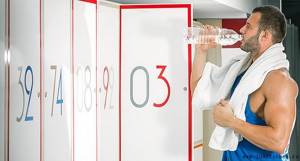
Sometimes you may feel like you want to drink a glass in one gulp or have no desire at all. The second case is a common occurrence for training in winter. But you should be attentive to your feelings; if classes are held in a heated room with dry air, dehydration occurs faster. In such cases, it is necessary to gradually and measuredly replenish the fluid deficit in the body. Too much water intake after physical activity complicates the work of the heart and washes away sodium, which threatens cramps, so it is important to observe moderation in everything.
You should not take carbonated water, sweet drinks, or iced teas with you to training. They do not satisfy the need for fluid. On the contrary, they whet thirst and sometimes appetite.
Water for drying muscles and losing weight
In the process of drying the body, water rids the body of harmful substances and salts. Accordingly, during the period of muscle drying, it is necessary to increase the volume of water entering the body. The desired amount of water consumed per day for a specific person can only be determined by a specialist; this is due to the individual needs of each organism.

The optimal amount of water consumed during drying depends on the intensity of your workout and the characteristics of your body.
How and how much water you need to drink depends on the training regimen and the degree of load - the higher the load and the more intense the workout, the more fluid the body loses, which means the volume of required water consumption will increase. On average, you need to drink 1.5 liters of water during training, approximately 300 ml before and after training.
There is no good reason to prohibit the consumption of clean water after training, since the liquid itself is very important for our body - especially in the process of its recovery. It is very important to listen to the body's fluid needs and remember that after any sport we need to replenish the lost fluid balance.
Water after training for abdominal muscles
You should drink water even if you are not sweating, which is a signal of a severe decrease in hydration levels. The temperature of the drink is important; it should be at room temperature. After classes, you need to restore your breathing, sit in a calm environment and drink 200 ml of non-carbonated mineral water for five minutes. The sips should be small. Before swallowing water, you should keep it in your mouth for some time for better absorption and replenishment of water balance.
30-40 minutes after finishing your abdominal workout, you should prepare a protein shake. It can be replaced with milk or a light protein snack. Properly organized nutrition and fluid intake will give health and youth to the cells of the body. This means that you will have not only strong abdominal muscles, but also velvety skin.
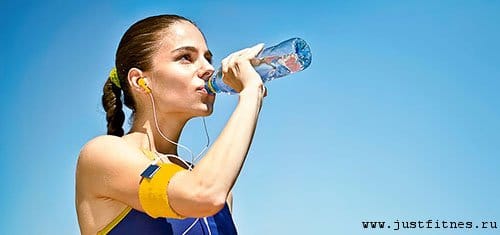
Water after boxing training
Boxing training is especially intense and difficult. When the body is active, the vessels become wider and the blood becomes more fluid. Often beginners prefer to take water from the refrigerator. But the circulatory system, heart and stomach suffer from such water. This is fraught with a sharp narrowing of the blood vessels of the heart, which reduces its blood supply and increases blood pressure. When ice water reaches the stomach, its muscles contract, which is dangerous for the digestive system.
Water is necessary after boxing training, but you need to consume it correctly, then the benefits from sports activities will be maximum. Carbonated water gives a feeling of heaviness in the stomach and does not quench thirst. Mineral water without gas is the best option.
Scientists have established the benefits of isotonic sports drinks that do not contain caffeine. They are ineffective at low loads, but for intense cyclic training they are simply irreplaceable. They come in the form of powders that are dissolved in water immediately before use. You should consume no more than 500 ml at a time; large portions provoke swelling. Isotonic drink replenishes fluid loss, quenches thirst and contains minerals beneficial to the body.
What kind of water is right to drink?
It is advisable to drink clean water, especially if your workout lasted about an hour or more. Non-carbonated mineral water or water passed through a special filter is best. You can add a slice of lemon to plain water if you want to make the drink healthier or just add flavor.
When it comes to flavored water from stores, you have to be careful. Why? Because the composition may contain excess carbohydrates and chemical additives that should not be consumed.
Water for children after physical activity
Children should be monitored to reduce their consumption of sweetened beverages. After sports games, running, skiing, the child needs to drink ordinary purified water at room temperature. Juices and other drinks containing sugar are not recommended after exercise.
The volume of fluid required depends on the child’s weight, and usually it is no more than 100 ml. If physical activity lasts about half an hour, then children can refrain from drinking water during it. Water stays in the stomach for some time, which means it will add discomfort when moving quickly. The best option would be to restore your water balance immediately after training by drinking slowly, measuredly and in small sips.

